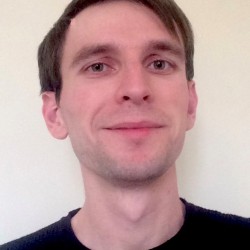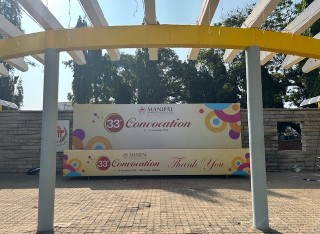
Dr Richard Green
Academic and research departments
School of Health Sciences, Surrey Institute for People-Centred Artificial Intelligence (PAI).About
Biography
Richard was awarded a prestigious Surrey Future Fellowship in April 2023 to develop an ambitious interdisciplinary programme of research focused on understanding and addressing complex challenges in health and social care using artificial intelligence, systems thinking, and simulation methods. His current work explores how agent-based modelling (ABM) and participatory approaches can be used to investigate under-examined areas of care provision and access, primary, community, palliative, unpaid, and integrated care contexts.
Richard’s research vision is shaped by a commitment to advancing qualitative and mixed-method research that accounts for the complexity of care systems and the lived experiences of older adults and their caregivers. He is particularly interested in how simulation methods can support both research and policy.
Richard completed a BSc in Criminology and Sociology at Royal Holloway University and then an MSc in Social Research Methods at the University of Surrey, before completing his PhD in Sociology in partnership with both universities on an ESRC studentship. His PhD explored men's experiences following treatment for prostate cancer in a qualitative interviewing study. Before joining the PALLUP study, Richard worked at the Office for National Statistics as a Senior Research Officer, working on facilitating research access to secure data for research that serves the public good.
ResearchResearch interests
Richard’s research interests lie at the intersection of ageing, health, and care, with a particular focus on the complex and often under-researched experiences of older adults and unpaid carers. His work is increasingly centred on applying systems thinking and agent-based simulation methods to explore challenges in care provision and access. He is especially interested in how participatory and mixed-method approaches can inform the development of meaningful models to guide decision-making in health and social care.
His broader interests include ageing, chronic illness, multimorbidity, and digital health inequity. Richard welcomes contact from potential doctoral researchers interested in these or related areas, and is keen to support interdisciplinary and/or international collaborations.
Research interests
Richard’s research interests lie at the intersection of ageing, health, and care, with a particular focus on the complex and often under-researched experiences of older adults and unpaid carers. His work is increasingly centred on applying systems thinking and agent-based simulation methods to explore challenges in care provision and access. He is especially interested in how participatory and mixed-method approaches can inform the development of meaningful models to guide decision-making in health and social care.
His broader interests include ageing, chronic illness, multimorbidity, and digital health inequity. Richard welcomes contact from potential doctoral researchers interested in these or related areas, and is keen to support interdisciplinary and/or international collaborations.
Supervision
Postgraduate research supervision
Awarded
Dr Faith Howard, 'PRO-FRAIL Project: Capturing and measuring what matters most to older people with frailty towards the end of life.'
Current Students
Habibur Rahman
Ravina Rao
Andrea Garcia Llorens
Teaching
Postgraduate Certificate in Learning and Teaching in Higher Education (with Merit) - University of Surrey, 2025
Sustainable development goals
My research interests are related to the following:


Publications
This article explores men’s experiences following treatment for prostate cancer through the lens of chronic illness. Recent empirical work suggests prostate cancer may be better understood as a chronic illness. Prostate cancer offers a case study to examine how older men’s masculinities are disrupted by chronic illness experience. Qualitative interviews with 29 men, recruited from two prostate cancer support groups, explored prostate cancer and post-treatment experiences. Men’s experiences are examined by drawing on the works of Steve Robertson and Kathy Charmaz for understanding masculinities in relation to health and illness. Aspects of chronic illness experience are identified in men’s accounts, particularly concerns with loss of moral status resulting from ongoing and potentially stigmatising treatment side effects. Four forms of moral positioning are identified that align with Steve Robertson’s empirically derived model theorising the relationship between health and hegemonic masculinity. These findings facilitate discussion of the interaction between chronic illness experience, morality and masculinities, providing insight into how older men maintain their masculinity in the wake of illness.
This article examines men’s prostate cancer experiences through the lens of patient expertise. Qualitative interviews were conducted with 29 men treated for prostate cancer, recruited from two prostate cancer support groups (PCSGs) in the South-East of England. Different forms of expertise, as classified by Collins, were found to be possessed by these men. How these different forms of expertise were acquired, used, and shared with others are explored, and a concept of communal licensing is posited to better understand these activities. The acquisition and usage of these different forms of expertise, through the employment of moral discourses that emphasise responsibility for one’s own health, are found to serve to blur the boundaries between lay person and expert.
Background:
Older people living with multimorbidity are projected to become the main recipients of palliative care in the coming decades, yet there is limited evidence regarding their expressed palliative care needs to inform person-centred care.
Aim:
To understand the palliative care needs of community-dwelling people aged ⩾60 living with multimorbidity in the last 2 years of life.
Design:
A scoping review following Arksey and O’Malley.
Data sources:
Three international electronic databases (CINAHL, Ovid Medline, PsycINFO) were searched from March 2018 to December 2021. Reference lists were hand searched. Eligible papers were those reporting empirical data on older people’s needs.
Results:
From 985 potential papers, 28 studies were included, published between 2002 and 2020; sixteen quantitative, nine qualitative and three mixed methods. Data were extracted and presented under the holistic palliative care domains of need: physical, psychological, social, spiritual, and additionally practical needs. Different measurement tools (n = 29) were used, of which 20 were multidimensional. Primacy in reporting was given to physical needs, most commonly pain and function. Social and practical needs were often prioritised by older people themselves, including maintaining social connections and accessing and receiving individualised care.
Conclusion:
Identifying the palliative care needs that matter most to older people with multimorbidity requires the recognition of their concerns, as well as their symptoms, across a continuum of living and dying. Available evidence is superficial. Supporting end of life provision for this growing and underserved population necessitates a shift to tailored multidimensional tools and community focussed integrated care services.
As mediated death has become a staple of contemporary society, debates about the treatment of death in the public domain abound. This article examines the true crime comedy podcast My Favorite Murder, arguing that it functions to produce a collaboratively ‘provocative morbid space’ in which its hosts and audiences can engage in contemplating, discussing, and negotiating the politics of murder, victimhood, and their surrounding inequalities. My Favorite Murder explicitly positions itself as provocative and morally ambiguous, raising questions about who has ownership, legitimacy, and moral standing when it comes to discussing death. We argue that the podcast both reflects public fascination with death and functions to enact a socially progressive agenda through controversial and entertaining popular cultural engagement with the sensitive subject of murder. With the hosts acting as what we term ‘(im)moral entrepreneurs’ collaboratively producing with audiences ‘counter cultural (im)moral discourses’, the commercially successful podcast offers a version of the ‘cautionary tale’ that foregrounds the sociocultural inequalities that have contributed to the vast array of murders discussed across its 300+ existing episodes.
This article explores men’s experiences of and management strategies for urinary incontinence (UI) following treatment for prostate cancer. Qualitative interviews with 29 men, recruited from two prostate cancer support groups, explored their post-treatment experiences. Drawing on a conceptual toolkit connecting theories of masculinities, embodiment, and chronic illness, this paper identifies older men’s experiences and strategies for managing UI and explores how these are shaped by their masculinities. This article identifies interdependence between managing stigma for UI and maintaining masculinity. Men’s embodied practices for engaging in activities in public, crucial to masculine identity, were disrupted. In response, they adopted new reflexive body techniques to manage and resolve their UI, and thereby address the threat to their masculine identities, characterised in three strategies: monitoring, planning, and disciplining. The new embodied practices men described suggest three factors as important components for adopting new reflexive body techniques: routine, desire, and unruliness.
Background:
Older people with severe frailty are nearing the end of life but their needs are often unknown and unmet. Systematic ways to capture and measure the needs of this group are required. Patient reported Outcome Measures (PROMs) & Patient reported Experience Measures (PREMs) are possible tools to assist this.
Aim:
To establish whether, and in what ways, the needs of older people living with severe frailty are represented within existing PROMs and PREMs and to examine the extent to which the measures have been validated with this patient group.
Design:
The scoping review follows the method of Arksey and O’Malley.
Results:
Seventeen papers from 9 countries meeting the inclusion criteria and 18 multi-dimensional measures were identified: 17 PROMs, and 1 PROM with PREM elements. Seven out of the 18 measures had evidence of being tested for validity with those with frailty. No measure was developed specifically for a frail population. Using the adapted framework of palliative need, five measures covered all five domains of palliative need (IPOS, ICECAP-SCM, PDI, WHOQOL-BREF, WHOQOL-OLD). The coverage of items within the domains varied between the measures.
Conclusion:
Existing PROMs and PREMs are not well designed for what we know about the needs of older people with severe frailty. Future research should firstly focus on adapting and validating the existing measures to ensure they are fit for purpose, and secondly on developing a better understanding of how measures are used to deliver/better person-centred care.
Objective:
To investigate differences in the prevalence of frailty between LGBT+ and non- LGBT+ older adults.
Methods:
A cross-sectional study involving Brazilians aged 50 and over was performed. The participants were invited to participate in an anonymous online survey between August 2019 and January 2020. The survey was widely distributed in neighborhood associations, day centers, non-governmental organizations, and social media. Those who identified as homosexual, bisexual, pansexual, non-heterosexual, transgender, travesti, or non-binary were grouped as LGBT+. Participants who were both cisgender and heterosexual were categorized as non-LGBT+. Frailty was measured using the FRAIL scale, and the participants were categorized as robust, prefrail, or frail. Generalized ordered logistic models were used to examine the adjusted association between LGBT+ status and frailty according to age and sex.
Results:
The study sample included 6,693 participants with a median age of 60 years. Overall, 1,332 patients were LGBT+ (19.9%), and 5,361 were non-LGBT+ (80.1%). Pre-frailty or frailty was observed in 656 (49%) LGBT+ participants and 2,460 (46%) non-LGBT+ participants (p=0.03). Multivariate analyses showed that being LGBT+ was independently associated with frailty in female participants aged ≥50 years (OR=1.52, 95%CI=1.08-2.13, p=0.02) and male participants aged ≥60 years (OR=2.83, 95%CI=1.41-5.69, p=0.004). Non-cisgender participants were also more likely to be frail than cisgender participants (OR=2.21, 95%CI=1.42-3.42, p<0.001).
Conclusion:
LGBT+ status was independently associated with frailty in female adults aged >50 years and males aged > 60 years. More research in this area and inclusive government policies are needed to promote the healthy aging of the LGBT+ population.
Digital health technology (DHT) holds the potential to improve health services, and its adoption has proliferated in recent decades owing to technological advancement. Optimal evaluation methodologies appropriate for generating quality evidence on DHT have yet to be established; traditional comparative designs present several limitations. This study aimed to scope the literature to highlight common methodological approaches used and their limitations to inform considerations for designing robust DHT evaluation studies. A scoping review was conducted following the Joanna Briggs Institute (JBI) scoping review guidelines. A systematic search was conducted using the CINAHL (EBSCO), MEDLINE (EBSCOhost), PsycINFO (EBSCO), EMBASE (Elsevier) and Web of Science (Clarivate Analytics) databases using iteratively developed search terms. We selected studies published in English between January 2016 and March 2022 and focussed on primary research evaluating the effectiveness of DHT with technology-user interactive or asynchronous features for adults (≥18 years) with cancer, diabetes or cardiovascular conditions. The final number of articles, after the screening and selection process, comprised 140 records. Data were analysed descriptively (frequency and percentages) and summarised thematically. Results showed most studies (n = 104, 74.3%) employed the standard two-arm parallel RCT design, with usual/standard care as the preferred comparator in nearly half (n = 65, 47.1%) of all included studies. Of the 104 comparative studies reviewed, limitations in recruitment were most frequently reported (n = 70, 37%), followed by limitations in evaluation/measurement techniques (n = 57, 27%), presence of confounding factors (n = 50, 24%) and short duration of studies (n = 24, 11%). The review highlights the need to consider inclusive approaches to recruitment and adoption of the emerging methodological approaches that account for the fast-paced, multi-component and group contamination problem resulting from the unconcealable nature of DHT interventions.
Background
Older people with severe frailty are nearing the end of life and require community services that span the care continuum, integrating older people’s care (e.g. physical function; rehabilitation) and palliative care (e.g. symptoms; what matters most to the person). Little is known about current community service provision to this population.
Objective
To characterise the scope of community service provision to older people with severe frailty in England.
Methods
A cross-sectional online survey design identifying common components and service configurations of community services providing care to older people with severe frailty in England. A self-selecting sample of multidisciplinary care providers from multi-agency community services working with older people with severe frailty with end-of-life care needs.
Results
Two hundred ninety-eight participants from 102 unique services across all English regions reported information on their service, including frailty and end-of-life assessment, service components, training, service costs and service development. Identification and assessment of frailty and end of life were routinely practiced, but approaches to identification varied. Organisations’ training and development were focussed on their own service provision with little focus on inter-organisational and cross-sectoral working.
Conclusions
Community care services responses were varied to this population’s diverse needs, which risks less coordinated practice and poorer care outcomes. Poorly integrated services can only partially meet the needs of older people with severe frailty. Further research is needed to address barriers to integration, including cross-sector collaboration, consistent use of appropriate assessment tools and service innovations driven by older people’s expressed needs.
This article explores men’s experiences and management of uncertainty following treatment for prostate cancer. Qualitative interviews with 29 men, recruited from two prostate cancer support groups (PCSGs) in the Southeast of England, explored prostate cancer and post-treatment experiences of uncertainty. Data were analysed thematically using a constructivist grounded theory approach. Four common uncertainties were identified: (1) fear of cancer recurrence from continued biomedical monitoring following treatment; (2) fear of cancer recurrence from unexplained bodily symptoms; (3) concerns about post-treatment side effects; and (4) concern with having made the ‘right’ treatment choice. Three strategies for how men managed these uncertainties were also identified: (1) interpreting biomedical knowledge; (2) planning for future uncertain events; and (3) engaging with support groups that served as vigilance networks. Nuanced strategies of vigilance are identified, of reinterpreted pasts and imagined futures to manage uncertainties. These strategies temporally displace the uncertain present and are employed individually and communally as part of vigilance networks. This article adds to theoretical resources for understanding uncertainty management and evidences the chronicity of men’s post-treatment experiences of prostate cancer.



